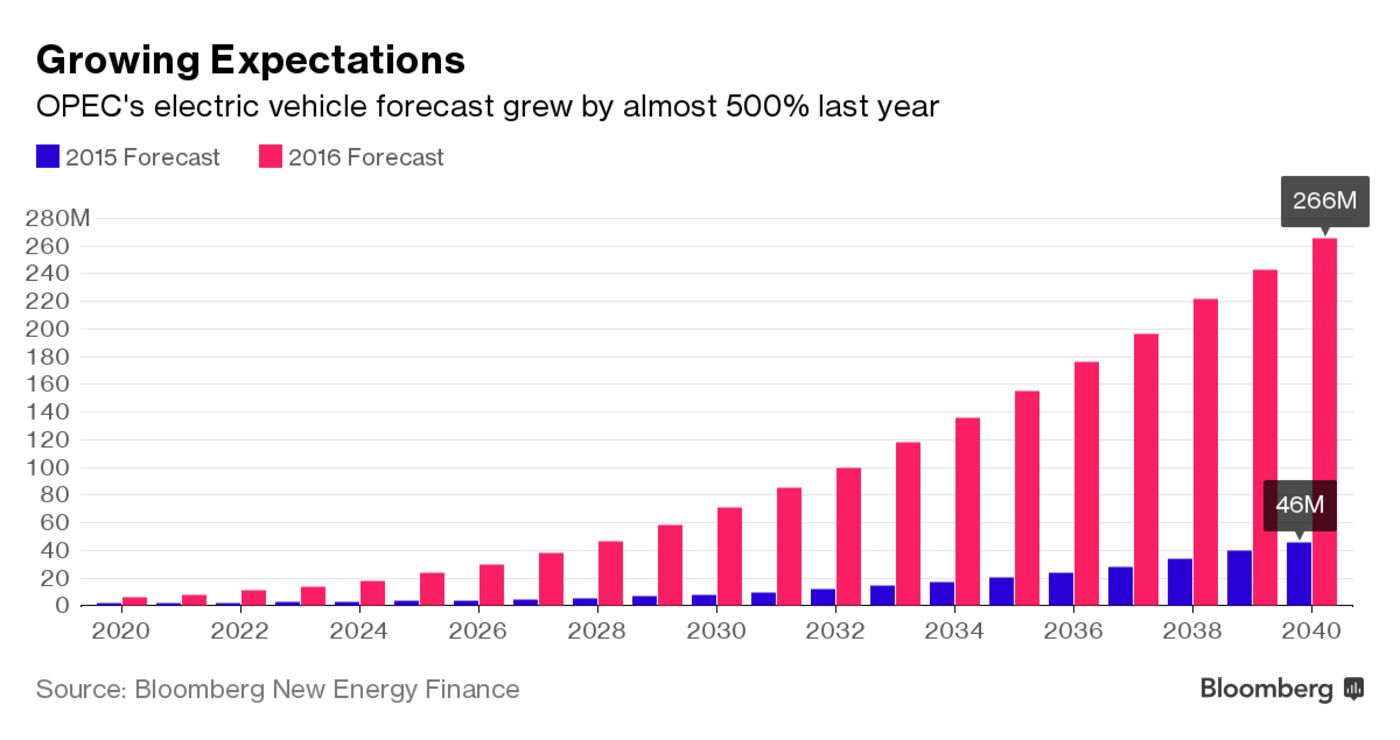Categories:
Energy
/
General Market Commentary
Topics:
General Energy
/
General Market Commentary
Gas Stations Get Ready for the Electric Future
A pit stop on a Norwegian highway in the middle of fields between Oslo and the Olympics town of Lillehammer will soon offer a glimpse of the future for the global gas station industry.
At the Circle K in Dal, 34 miles (55 kilometers) north of the capital, owners of the next generation of electric cars will within months be able to charge their battery in as little as 10 minutes -- about one-third the time it now takes. While they wait, drivers can pop inside and wolf down a made-to-order burrito and other culinary items not usually found at gas station convenience stores.

Electric automobiles sit at an electric vehicle charging station at a Circle K gas station.
Photographer: Kyrre Lien/Bloomberg
The new power and food services are two of several pilot projects in Norway by Circle K owner Alimentation Couche-Tard Inc., a Canadian convenience-store company that gained a European foothold with its 2012 acquisition of Statoil ASA’s retail arm. Couche-Tard is using the Nordic country as a testing ground for how to respond to the electric-vehicle boom.
“This is a trend that will continue to grow, so what is important to us is to transform with the market, like we have done many, many times over the last 100 years,” Jacob Schram, Couche-Tard’s head of European operations, said in an interview.
The growing global popularity of environment-friendly electric cars, spurred by government incentives and falling prices, is threatening the core relationship between gas stations and drivers who now have various options to reload their batteries. To keep customers loyal in Norway, where electric vehicles now account for almost 30 percent of new sales, Circle K is even planning a 2018 foray into residential charging stations.
“We should transform much more, from expecting that the customer comes to us at the station,” Schram said. “We should maybe start also coming to them.”

According to Schram, 60 percent to 70 percent of plug-ins take place at home, 20 percent to 30 percent at work and in public places, and only 10 percent at gas stations. That’s forcing retailers to step up their game.
At Circle K’s Dal facility, the new supercharger is part of a European-wide push financed by a group of carmakers including BMW AG and Ford Motor Co. Circle K is their northern European partner, with 60 stations planned in seven countries -- 20 in Norway alone -- and room for six cars per charging station. The retailer will pocket rent from automakers, as well as a share of revenue, according to Schram.
The Norway experiment is being closely monitored by Quebec-based Couche-Tard. The company, which started with one convenience store outside of Montreal in 1980, has gobbled up rivals to build a network of more than 12,000 stores spanning the globe from Florida to Latvia, with most offering fuel. The anemic performance by the company’s stock this year -- it’s up less than 1 percent after more than doubling since the start of 2014 -- partly reflects investors’ questions over long-term growth prospects.